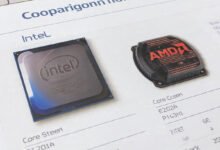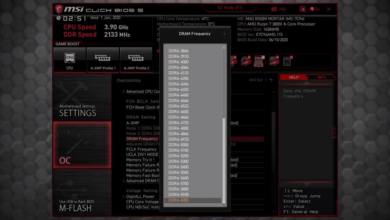How to Get Started in Computing: A Step-by-Step Guide

In this digital age, the world of computing is brimming with opportunities. Whether you’re a tech enthusiast looking to embark on a new career path or a curious individual eager to explore the wonders of computing, this step-by-step guide will help you navigate your journey. From understanding the fundamentals to diving into specialized areas, let’s embark on a computing adventure together.
Get Started in Computing
Computing is the heart and soul of the digital world. It powers everything from your smartphone to complex data centers. This guide will take you through the essential steps to embark on a journey in computing.
Understanding the Basics
What is Computing?
Computing is a vast and multifaceted field that involves using computers to perform various tasks, solve complex problems, and process data. It encompasses a wide range of activities, from programming software to managing networks and handling data. At its core, computing is about harnessing the power of technology to make our lives easier and more efficient.
Why Choose Computing?
Get Started in Computing: If you’re considering a journey into the world of computing, it’s essential to understand the compelling reasons why this field is worth exploring.
- High Demand for Professionals: The demand for skilled computing professionals is on the rise. As our reliance on technology continues to grow, businesses and organizations are constantly seeking individuals with expertise in computing to develop and maintain their digital infrastructure.
- Endless Creativity: Computing is a creative field where you can bring your ideas to life. Whether you want to build a new mobile app, design a cutting-edge website, or develop innovative software, computing offers endless opportunities for creativity and innovation.
- Societal Impact: Computing has a significant impact on society. From advancing medical research to revolutionizing industries like finance and entertainment, computing plays a pivotal role in shaping the world we live in.
- Versatility: Computing is not limited to one specific area. You can specialize in various subfields, such as web development, data science, cybersecurity, or artificial intelligence. This versatility allows you to tailor your career to your interests and passions.
- Problem-Solving: At its core, computing is about solving problems. Whether you’re troubleshooting a network issue, optimizing a database, or developing algorithms, computing professionals are problem solvers who thrive on challenges.
- Continuous Learning: Technology is ever-evolving, which means you’ll never stop learning in the field of computing. This constant evolution keeps the work dynamic and exciting, ensuring that you’re always at the forefront of innovation.
Read More: How Quantum Computing Works
Learning Programming Languages
Choosing the Right Language
Get Started in Computing: Programming languages are the foundation of computing. They are the tools that enable you to communicate with computers, instruct them to perform tasks, and create software applications. As you embark on your computing journey, understanding and mastering programming languages is a crucial step.
Choosing the Right Language
Python: The Beginner’s Best Friend
Get Started in Computing: Python is often hailed as the ideal programming language for beginners, and for good reason. It’s known for its simplicity and readability, making it an excellent choice if you’re starting. Python’s syntax is easy to understand, which means you can focus on learning programming concepts rather than getting bogged down in complex code.
Key Benefits of Python:
- Readability: Python code is highly readable, resembling the English language, making it easier for beginners to grasp.
- Versatility: Python is incredibly versatile and finds applications in web development, data analysis, machine learning, and more.
- Large Community: A vast community of Python developers means plenty of resources, tutorials, and support are available online.
- In-Demand: Python skills are in high demand in various industries, including data science, automation, and web development.
JavaScript: Powering the Web
Get Started in Computing: If your interest lies in web development and creating interactive websites, JavaScript is a must-learn language. It’s the language of the web, enabling you to build dynamic and engaging user interfaces. JavaScript is commonly used in conjunction with HTML and CSS to create full-fledged web applications.
Key Benefits of JavaScript:
- Front-End Development: JavaScript is essential for front-end web development, allowing you to add interactivity and responsiveness to websites.
- Versatility: Beyond web development, JavaScript can also be used for server-side scripting (Node.js), making it a versatile language.
- Abundant Resources: The web development community offers a wealth of tutorials, frameworks, and libraries for JavaScript developers.
Java: The Enterprise Choice
Get Started in Computing: Java is a robust and widely used programming language known for its platform independence. It’s a popular choice for building large-scale, enterprise-level applications. While it might have a steeper learning curve compared to Python, mastering Java opens doors to a range of high-paying career opportunities.
Key Benefits of Java:
- Platform Independence: Java applications can run on different operating systems without modification, thanks to the Java Virtual Machine (JVM).
- Enterprise Applications: Java is the language of choice for building robust and secure enterprise-level software.
- Strong Job Market: Many businesses and organizations seek Java developers, offering competitive salaries.
Other Languages
Get Started in Computing: There are numerous other programming languages to explore, each with its unique strengths and applications. Some additional languages to consider include:
- C++: Ideal for system programming, game development, and applications requiring high performance.
- Ruby: Known for its elegant syntax and web development framework, Ruby on Rails.
- Swift: Designed for iOS and macOS app development.
- SQL: Essential for working with databases and managing data.
When choosing a programming language, consider your interests, career goals, and the specific field of computing you want to explore. Keep in mind that learning multiple languages can be beneficial, as it broadens your skill set and makes you a more versatile programmer.
Exploring Operating Systems
Get Started in Computing: Understand the role of operating systems in computing and explore options like Windows, macOS, and Linux.
Networking Essentials
Dive into the world of computer networking, understanding the basics of data transmission, network topologies, and security protocols.
Delving into Data Structures and Algorithms
Get Started in Computing: Mastering data structures and algorithms is fundamental for efficient problem-solving in computing.
Web Development and Design
Discover the art of web development and design, creating beautiful and functional websites and applications.
Mobile App Development
Get Started in Computing: Explore the world of mobile app development, from Android to iOS, and learn how to bring your app ideas to life.
Cybersecurity
Get Started in Computing: In an age of cyber threats, learn the essential skills to protect digital assets and data from malicious attacks.
Cloud Computing
Get Started in Computing: Understand the power of cloud computing and how it revolutionizes the way businesses operate.
Artificial Intelligence and Machine Learning
Get Started in Computing: Dive into the exciting realms of AI and machine learning, where you can create intelligent systems and predictive models.
Building a Portfolio
Get Started in Computing: Craft a portfolio showcasing your projects and skills, making you an attractive candidate for internships and job opportunities.
Read More: Understanding the Basics of Cloud Computing: A Beginner’s Guide
Conclusion
Embarking on a journey in computing is an exciting endeavor. With determination and the right resources, you can achieve your goals and make a meaningful impact in this ever-evolving field.
Remember that your journey into computing is a continuous process of learning and growth. Technology is ever-evolving, and staying curious and adaptable will be your greatest asset. Embrace challenges as opportunities to learn and innovate.
If you ever find yourself facing perplexity or burstiness in your learning path, don’t be discouraged. These challenges are part of the journey, and they often lead to the most significant breakthroughs.
FAQS
1. What are the prerequisites for getting started in computing?
There are no strict prerequisites, but a passion for problem-solving and a willingness to learn are essential.
2. How long does it take to become proficient in programming?
The time varies, but with consistent effort, you can become proficient within a few months to a year.
3. What programming language is best for beginners?
Python is often recommended for beginners due to its readability and versatility.
4. Is a computer science degree necessary for a career in computing?
While a degree can be beneficial, many successful professionals are self-taught or have alternative qualifications.
5. How can I stay updated in the rapidly changing field of computing?
Join online communities, attend conferences, and continuously seek out new learning opportunities.












One Comment